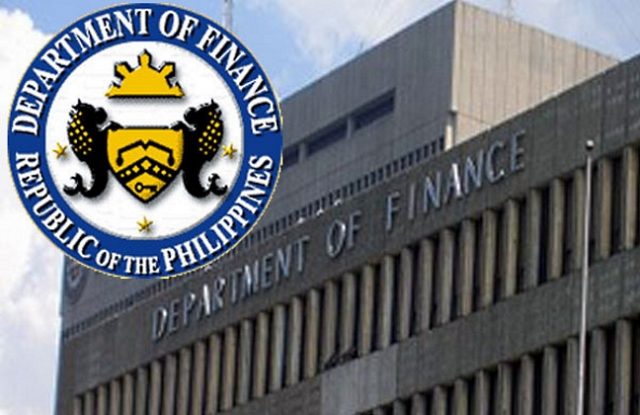MANILA – The Department of Finance (DoF) has sought to assuage investor concerns about the loss of incentives under the second tax reform package that could make it even harder for the Philippines to compete with neighbors for foreign direct investments.
“That the government will put ‘a stop to current incentives’ is a misconception of the proposed modernization of fiscal incentives,” a DoF statement on Sunday quoted Finance Undersecretary Karl Kendrick T. Chua as saying.
“This is simply not true. Incentives will remain to be granted, but more judiciously this time so that there is a better balance between the investment and fiscal sustainability goals,” he explained.
“The DoF recognizes the role of incentives to encourage investments.”
The measure, which the DoF submitted to Congress on Jan. 16, seeks to gradually cut corporate income tax rates to 25% by 2022 — when President Rodrigo R. Duterte ends his six-year term — from 30% currently, with the pace of reduction dependent on how much additional revenues the government rakes in from streamlining tax holidays granted by 14 investment promotion agencies. The department also inserted the removal of value-added tax (VAT) exemptions of coal and casinos in the second tax reform package.
The bill has yet to be filed in both chambers of Congress, even as the DoF targets ratification of all remaining three to four tax reform packages by December before the election fever for the May 2019 mid-term polls sets in and delays action on reforms deemed controversial or unpopular.
The first package — under Republic Act No. 10963, or the Tax Reform for Acceleration and Inclusion Act enacted on Dec. 19 last year and which took effect in January — cut personal income tax rates to give households more money to spend and plugged resulting foregone revenues by adding taxes on cars, fuel, sugar-sweetened drinks, some minerals and tobacco products, among others, and removing several VAT exemptions.
The Finance official said incentives should be “targeted, time-bound, transparent and performance-based” in order to make sure that only investments needed, which will deliver the desired development benefits and which require such government help will get them.
The government estimates that redundant incentives — which went to investments that would have come in even without such perks — cost it some P301 billion in foregone revenues in 2015.
“This is to ensure that every peso spent from the national budget generates the desired outcome–investments must create jobs, meet export targets, or achieve countryside development, among others. The SIPP (Strategic Investment Priorities Plan), not the law, will reevaluate priority industries every three years so that these priorities are aligned with changes in the economy,” said Mr. Chua.
The 2017 Investment Priorities Plan issued by Malacañang on Feb. 28 last year enumerated several economic activities as eligible for incentives, namely: manufacturing including agri-processing; agriculture, fishery and forestry; strategic services; infrastructure and logistics including local public-private partnerships; health care services including drug rehabilitation; mass housing; inclusive business models; environment and climate change; innovation drivers; and energy, among others.
LEAST COMPETITIVE
BMI Research said in a March 13 note that the Philippines is already the least competitive in the region despite the proposed corporate income tax cut, and removing incentives would only make it lose further advantage since some neighbors — especially Vietnam, Laos, Cambodia and Myanmar — have moved to regularly update their incentive packages.
The Organization for Economic Cooperation and Development, in a March 12 report on Southeast Asia’s investment regimes, noted that the Philippines’ targeted 25% corporate income tax rate by 2022 is still higher than the region’s 23% average.
Citing the World Economic Forum’s Global Competitiveness Report 2017, however, Mr. Chua noted that tax perks are not investors’ top consideration for investing in the country. That report listed the “most problematic factors for doing business” in the Philippines, with inefficient bureaucracy taking the top spot, followed by inadequate supply of infrastructure, corruption, tax regulations and then tax rates.
“Rather than provide incentives in perpetuity to only a select set of industries without any accountability, the government must address the more urgent concerns of modernizing infrastructure and investing in education and health to give all businesses — whether local or foreign, and whether large or small — a level playing field,” said Mr. Chua.
“Incentives should not be used as a band-aid solution. This is what the country has been doing for 50 years so it is high time to change this misguided policy.”
He said the Philippines is among the most generous markets in the region, having 14 investment promotion agencies that grant these perks.
“We have been granting incentives for 50 years, and it is time we reevaluate whether the benefits are worth the cost.” — Elijah Joseph C. Tubayan




